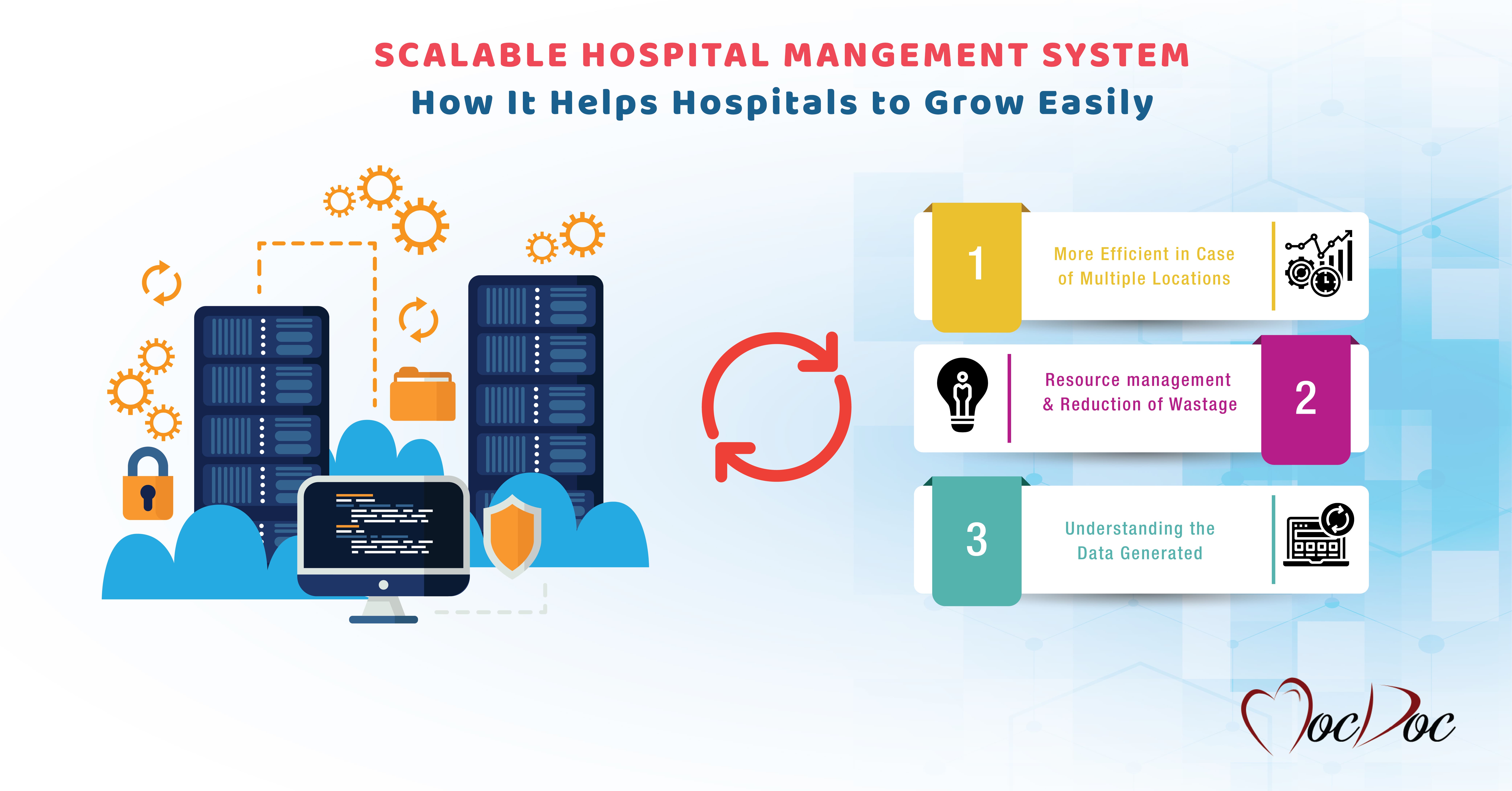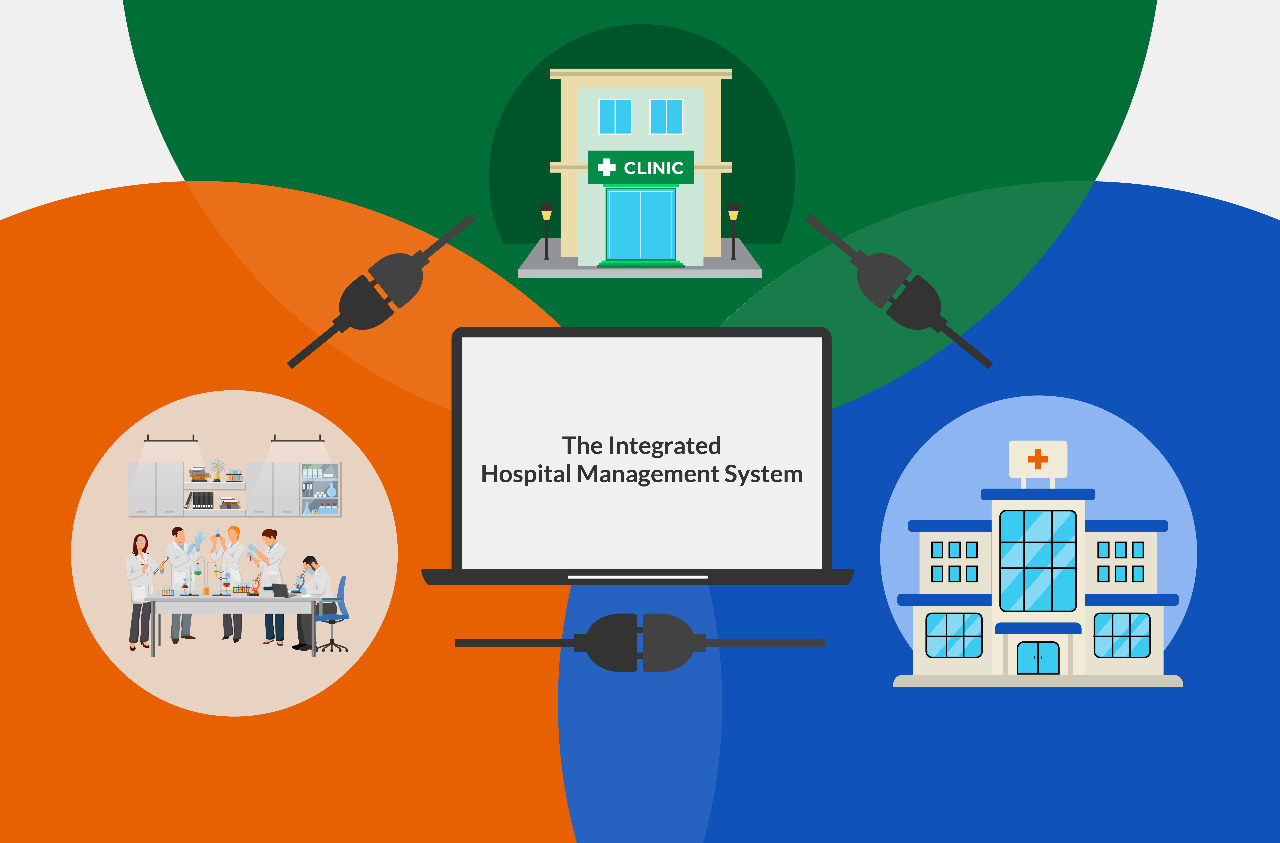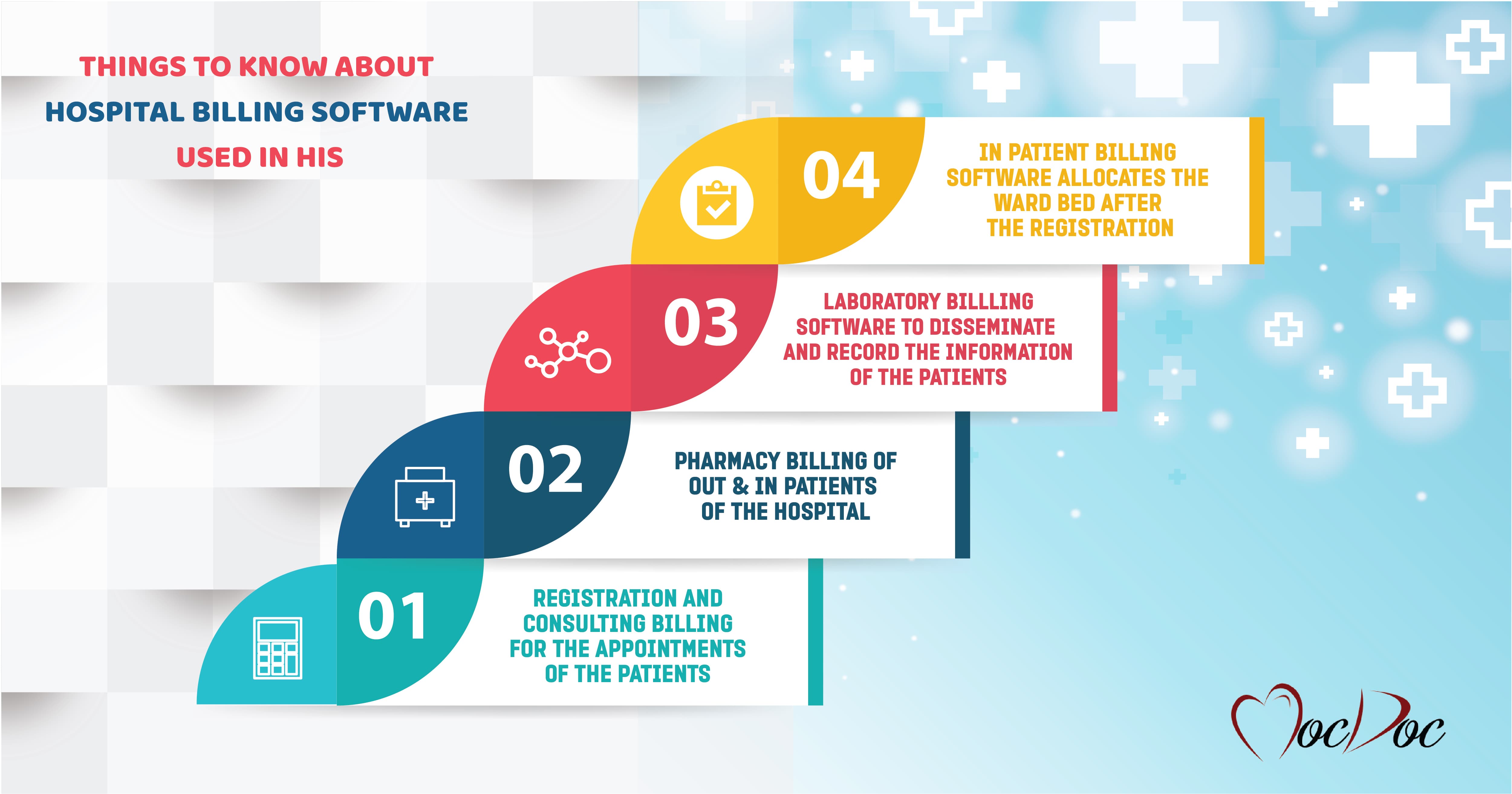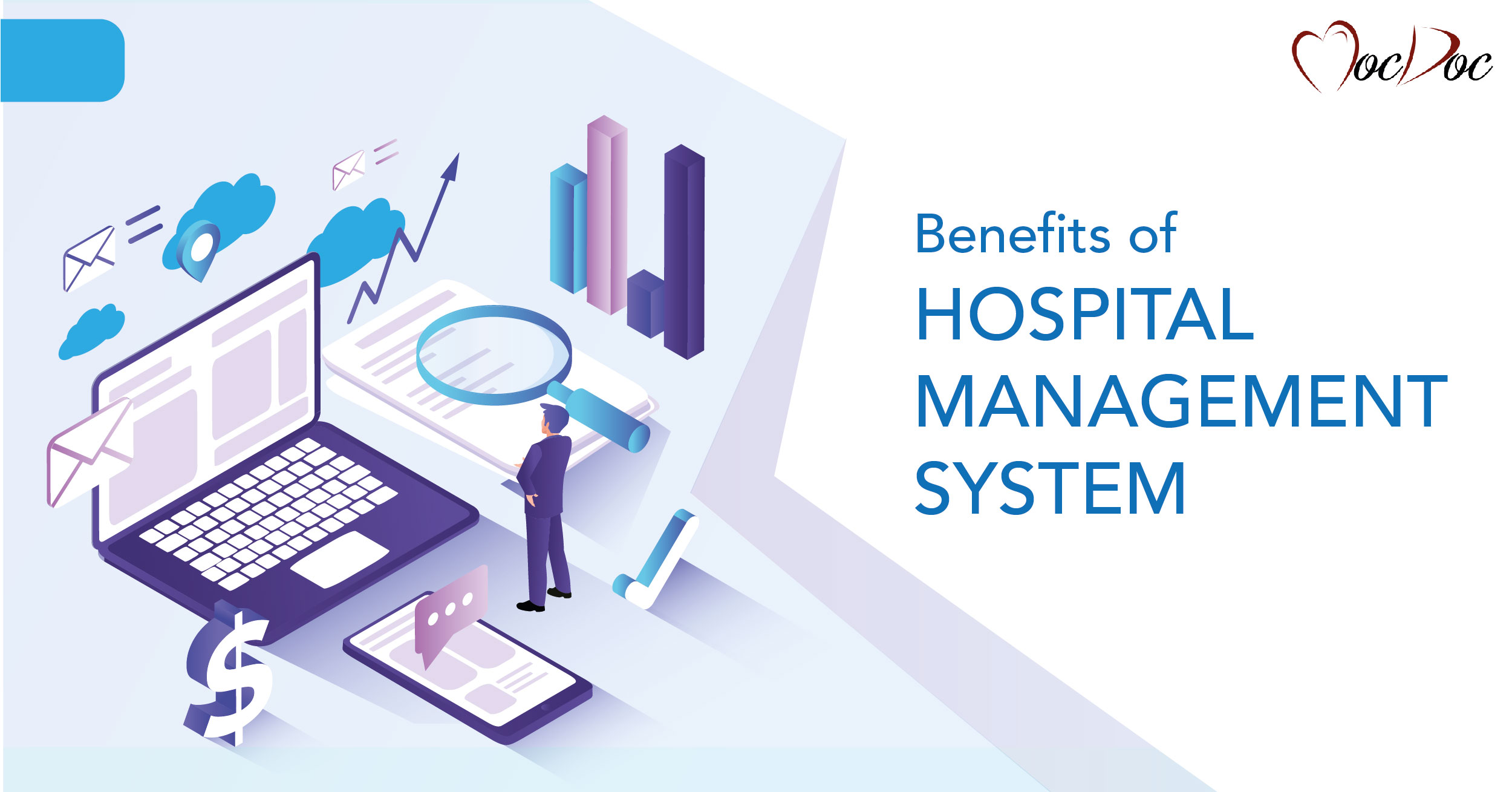MocDoc's Offerings
How HMS improves the quality of hospital
Published By
Sanjana
2019093013:01:47
Category HMS
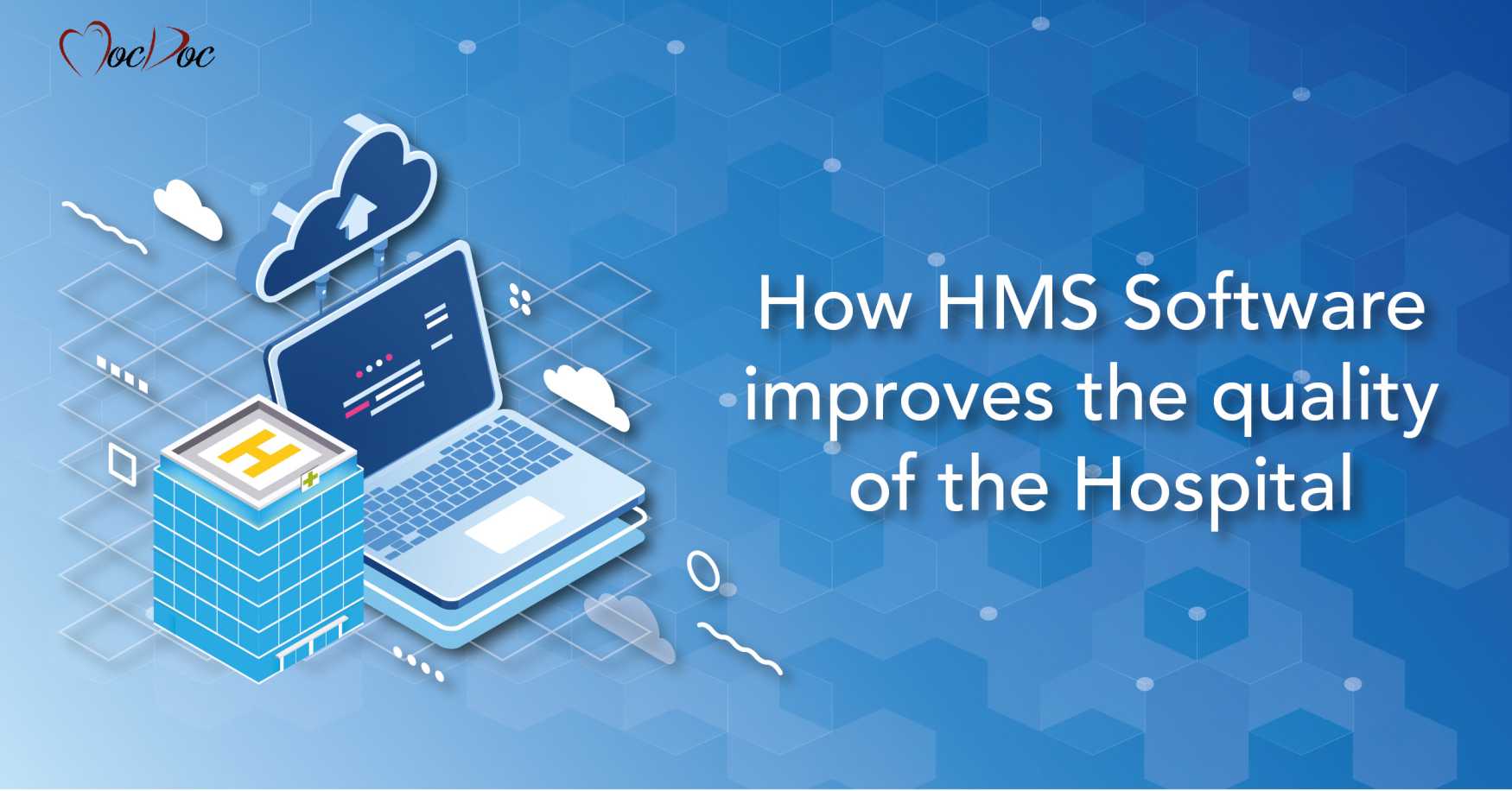
Hospital Management Software is considered to be the current trend and boom to every hospital administrations and management. An HMS is a web-based or computer-based software system which helps to control different complex workflows and processes which are inherent to the normal working of any hospital.
The HMS acts as the frontiers for various hospital stakeholders to access, capture, report, and manage every single information happening in the functioning of your hospital. Today let’s check how the Hospital Management System enhances your hospital quality.
Why is HMS mandatory for your hospitals and how does it improve your clinic quality?
A Hospital Management System provides you with different advantages like adaptive, innovation, affordability, and more. A quality HMS needs to have provisions for managing and documenting the hospital aspects like doctors, billing, patients, inventory, insurance, pharmacy, support staff, HR, diagnostics, radiology, reports, etc.
Some of the benefits of the HMS for your clinic include
● Quick and easy access to the records and other data of the patient.
● Automation brings efficiency
● Accuracy
● Patient satisfaction
● Speedy services
● Coordination between different departments
● Paperless record system.
Secure your data:
The Hospital Database Management System makes it unfeasible for any personnel who are unauthorized to access private and sensitive information, particularly in dealing with the records of the patients. It decreases data theft and similar possibilities and therefore you will be able to secure your data and thus an improvement in the hospital quality.
Making treatment and diagnosis simpler:
The Hospital Management System offers useful dashboards and reports, through which caregivers and doctors can have quick and simple access to the test results and records of the patients. It increases the competency of your hospital legitimately and also helps to improve your hospital quality.
Enhance quality ratings of the hospitals:
If the HMS is implemented in your hospital, then there is no worry about your clinic quality. It enhances your standing with quality circles and insurance companies significantly.
Run your hospital effectively:
The amount of effort and time you will save by implementing the Hospital Management System is surprising. These savings make for the smooth and efficient operation of your clinic.
Tracks for better financials:
Implementing a Hospital Management System in your hospital means there is a more significant benefit for the department of finance. It’s easy to track outflows, receivables, revenues, and debts better when HMS is implemented. The HMS generates a financial report that will have an accurate health picture of your hospital.
Eliminate errors:
There is a chance for many errors to occur if you are maintaining the manual or older method in your hospital. With HMS automation processes, you can easily avoid mistakes, and the workflow will go excellently when compared to the older or manual methods.
Higher patient satisfaction:
The hospital management system decreases the time taken for procedures and processes at all stages of patient interaction, namely discharge, billing, and registration, thus, it makes your clients and patients happy.
Paperless Operation:
The advent of the hospital management system is that it makes use of electronic records rather than physical files, which leads to a happier outcome when it comes to maintaining your hospital quality. It’s expected for hospitals to become paperless completely with further development in the hospital management system.
Start your research, reach for a reputable EMR vendor like MocDoc, and make the quality of your hospital rick and user-friendly.
Related Articles
Scalable Hospital Management S...
Hospitals are rarely a single department ent..... Read more
Why use an integrated hospital...
What is an integrated hospital management syste..... Read more
Things to know about Hospital ...
Billing software is one of the essential software ..... Read more
What are the benefits of the h...
HMS (MocDoc HMS) otherwise known as HMIS (Hospital..... Read more
